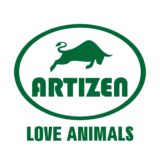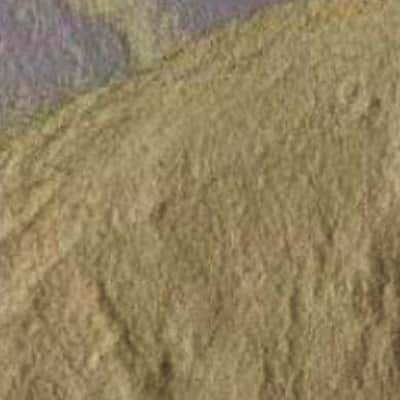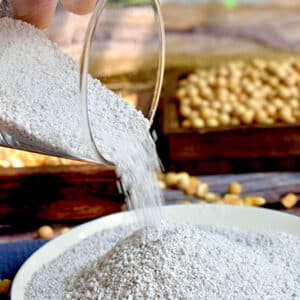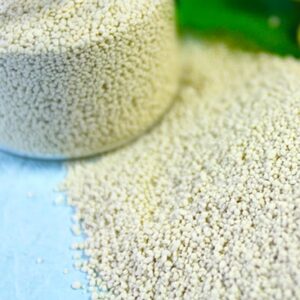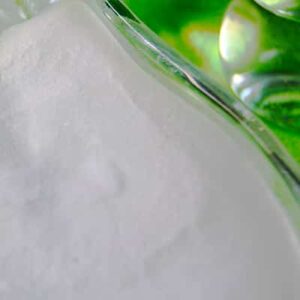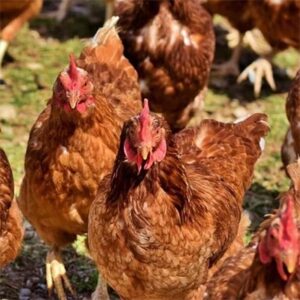Product Video
Product Introduction
Product Description
Lipase is a hydrolase that breaks down triglycerides and plays an important role in lipid metabolism. At the oil-water interface, it acts on the ester bonds in fats to break them down into free fatty acids, glycerol, and glycerol mono- or di-esters. Lipase reaction conditions are mild, have excellent stereoselectivity, and do not cause environmental pollution. Lipase can significantly improve the energy utilization of rice bran and oily feed materials, reduce nutritional diarrhea caused by fat indigestion, promote animal growth and ensure animal health.
Feed enzymes are produced by microbial fermentation and are enzymes that are added to feed to improve digestion and utilization of feed or to improve metabolic efficiency in animals. Enzymes that can be added to feed include Protease Mix, Thermostable Phytase, Highly Efficient Phytase, NSP Enzyme, Lipase, Pectinase, Cellulase, α-Amylase, Alpha- Galactosidase, Beta-Glucanase, Glucose Oxidase, Thermostable Acid Protease, Acid Protease, Thermostable Acid Beta-Mannanase, Beta-Mannanase, Xylanase, etc.
About 70% or more of poultry sticky wheat rations worldwide have enzymes added to them, and nearly 90% of poultry feeds in Europe contain enzymes.
Enzyme preparations are divided into three main categories:
Non-starch polysaccharidases
Non-starch polysaccharide enzymes include xylanase, β-glucanase, β-mannanase, cellulase, α-galactosidase, pectinase, etc., which act on the corresponding NSP in the feed. livestock and poultry do not secrete this type of enzyme and must be added exogenously from the feed, which is the main enzyme preparation for feeding.
Phytase
Phytase has a special spatial structure that sequentially separates phosphorus from phytic acid molecules and degrades phytic acid (salt) into inositol and inorganic phosphorus, while releasing other nutrients bound to phytic acid (salt).
Endogenous digestive enzymes
Endogenous digestive enzymes are enzymes that can be secreted by the animal’s digestive tract itself, mainly proteases, amylases, and lipases. In some special cases, endogenous enzymes also need to be supplemented by the feed.
Product Feature
- Supplement the deficiency of endogenous digestive enzymes in young animals, improve the digestive capacity of animals and reduce the risk of diarrhea
- It can decompose fat into free fatty acids, glycerol, and glycerol monoesters or diglycerides.
- Promote animal growth and improve animal performance.
Product Parameter
Species: Poultry or livestock.
Recommended Dosage: 25g-50g/mt of complete feed
Enzyme Activity: 100,000U/g
Appearance: Yellowish-brown to light yellow powder
Odor: Fermentation odor
CAS number: 9001-62-1
Loss on Drying: Not more than 10%
Product Packaging and Key Point
Package: 25kg per bag
HS Code: 2309901000
Keep away from the moisture and avoid storing it in a high-temperature environment. Seal both internal and external packages after use. 12 months from the date of production under proper conditions in a dry, well-ventilated, and cool place.
FAQ
A: No, according to customer needs.
A: The professional QC team will control the quality of the goods during all mass production, or if you wish, you can arrange a third-party inspection service. We will provide bulk samples for evaluation before shipment.
A: The sample is free, but the freight is payable. Please contact us in advance if you need samples. You can prepay shipping charges via PayPal or Western Union, and we will send samples as soon as we receive your shipping charges. Or you can provide your courier (DHL, TNT, etc.) account to us for pickup.
A: We can provide customers with full supervision of the procurement process and deliver the most satisfactory goods to them.
Accept delivery terms: FOB, CFR, CIF, EXW, CIP, DDP, express; Accept payment currencies: US dollars, Euros.
A: Yes, we do. We are a professional company in livestock farm products. We have a professional and strict quality control, we must provide you the best service for your need. Our product service department will keep in touch with customers and reply at any time.
Yes, we accept ordering samples to check quality. And mixing samples is acceptable.
A: For preparing samples, depending on the number of samples and process requirements, our preparation time is 1-7 days. International express delivery time is 3-7 days.
Related products
-
Animal Feed Additive Products
Feed Additive Lysine
-
Animal Feed Additive Products
Mono Calcium Phosphate MCP Feed Additive
-
Animal Feed Additive Products
Animal Feed Additive Liquid Tributyrin
-
Feed Enzyme
Feed Additive Thermostable Phytase
-
Feed Enzyme
Feed Enzyme Highly Efficient Phytase
-
Feed Enzyme
Animal Feed Additive Alpha-Galactosidase
-
Feed Enzyme
Feed Additive Animal Feed Enzyme Beta-Glucanase
-
Feed Enzyme
Feed Additive Xylanase Feed Enzyme
